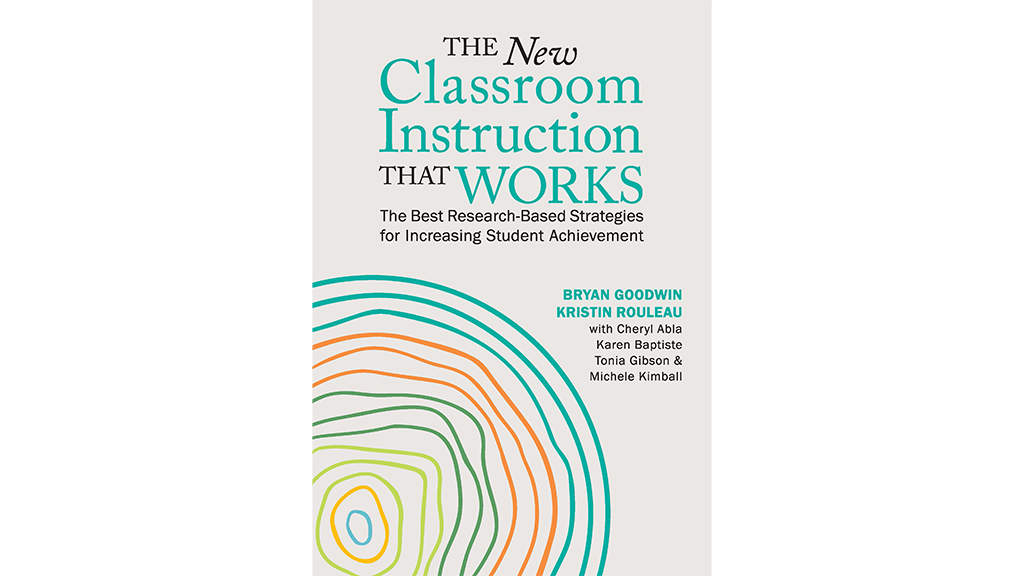
PHOTO COURTESY OF ASCD
Bryan Goodwin and Kristin Rouleau and their writing partners begin The New Classroom Instruction That Works: The Best Research-Based Strategies for Increasing Student Achievement by explaining the importance of validating the education profession with a series of research-based strategies to support the science of teaching. The introduction of this empirically transformative piece begins by stating that in order for teachers to be considered professional, empirical studies and strategies must not only guide the science of how to teach but also support the diagnosis and adjustments of learning deficiencies.
The first three chapters of this guidebook set the stage for teachers to evaluate their understanding about how students “actually learn” as opposed to their assumptions about the learning process. Chapter One explains that teaching with the low-achieving student in mind sets the tone of the learning environment by ensuring that lessons prioritize engagement, retention, and rigor. The staple principle for intentional teaching practices begins with activating student motivation. The authors propose that hands-on learning experiences yield better results when paired with cognitive clues, and they argue that teachers are responsible for designing curriculum spaces that connect to students’ lived experiences. In Chapter Three, Goodwin and Rouleau establish a well-rounded foundation for a teacher’s ability to support student engagement with higher-order thinking activities by supplying teachers with an intentional map of cognitive and metacognitive thinking strategies.
In their roles as instructional coaches, Goodwin and Rouleau use the structures of cognitive science to explore how to effectively consolidate and reactivate students’ learning experiences from both short- and long-term memory. Any educator struggling with supporting their students’ ability to retain information would find the culturally responsive strategies shared in chapters Five through Seven helpful. The authors of this work effectively leverage everyday jargon to explain the outcomes of compelling data and evidence-based strategies for increasing student achievement.
As the authors prepare future works, they should consider creating an empirical guidebook that supports specific classroom management strategies for novice educators. In summary, The New Classroom Instruction That Works provides a foundation for professional learning communities by guiding effective lesson planning as it pertains to pedagogical practices.
Sydney Carroll (scarro23@uncc.edu) is a doctoral candidate at The University of North Carolina at Charlotte.

Share this content